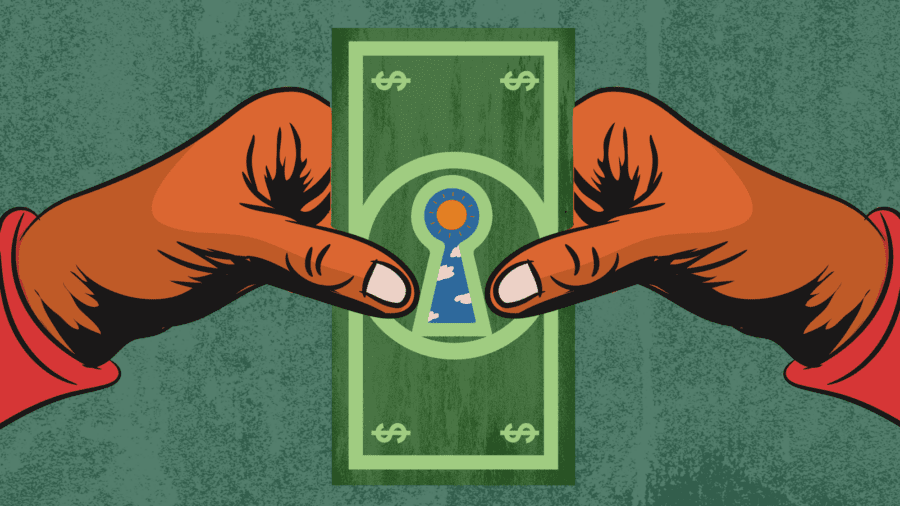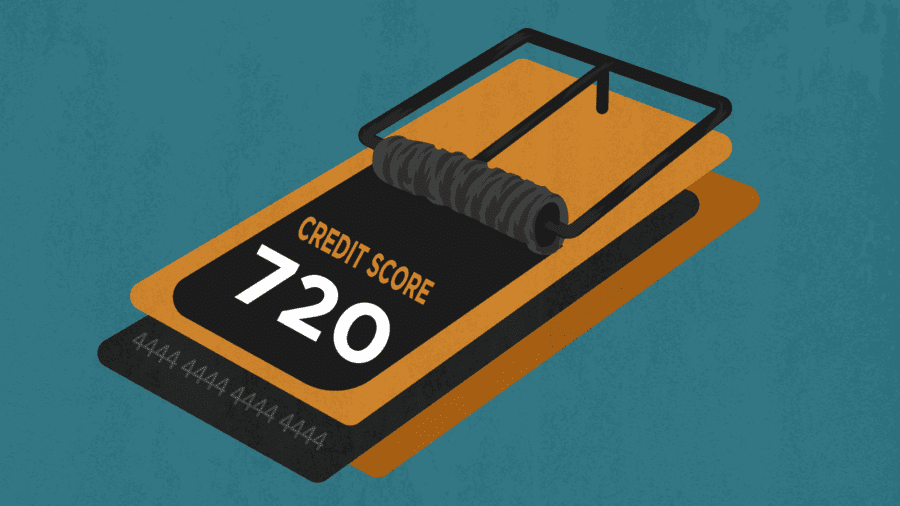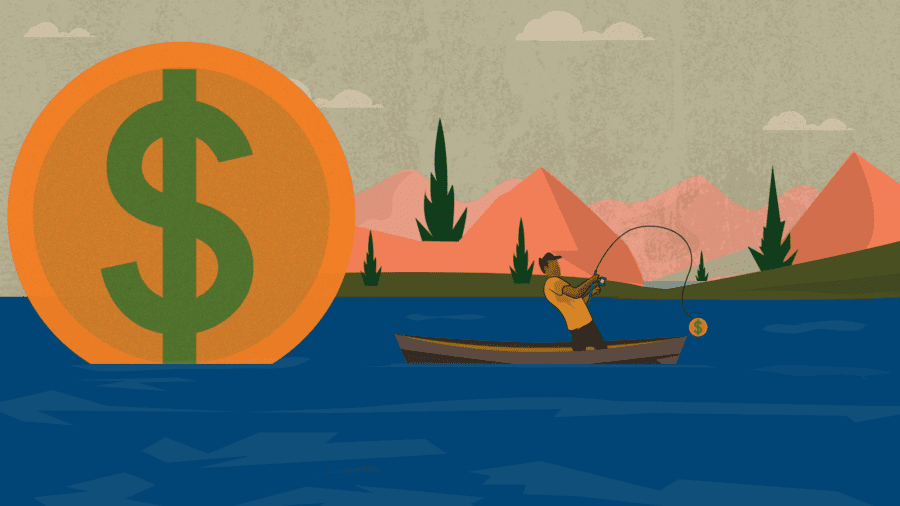
Why You Should Go on a “Money Date” with Your Finances (And How to Get Started)
Are you looking for a better way to understand your finances?
Then a money date may be the answer for you. You aren’t going to need to download a new dating app or spend hours getting ready. But you will need to prepare yourself for a deep conversation and reflection after it’s over.
Money dates, in general, involve open and frank discussions of a couple’s current state of finances — but they don’t necessarily need two parties involved. Going on a money date helps you open up your financial closet and let out all the facts about how much you spend and what type of debt you have. These types of dates aren’t your typical Friday night out, but they are equally as important for your financial life.
If you’ve been trying to get a better understanding of your financial situation, and are ready to take actionable steps to reach your financial goals, then join us as we look into how to prepare for and have a successful financial date with yourself in this article.
Why Money Dates Are Important
Even if we don’t want to admit it at times, money plays a significant role in our lives. When you have enough to be comfortable, it opens doors to many different opportunities, and it creates options for more weekend activities, more square footage, and whether you rent or buy. Ultimately, it’s not happiness that money delivers, it’s choices.
With that in mind, why would you want your weekly spending, debts, and bills to define everything you do with your money?
Like a relationship, you can’t succeed with your money until you understand yourself first. A money date with your finances is about putting yourself on notice of where your money is going each month and how much money is going toward needs, wants, and goals.
Sometimes all it takes is changing a couple of your money habits to unlock your financial freedom and manifest abundance in your life.
Questions to Prepare for Your Money Date
The most important element of a money date is honesty, which you’ll be backing up with your financial info (more on that later). To start preparing for a money date, you need to ask yourself some key questions.
Question #1: What are your financial priorities?
Think about your current position in life. Is it a time for you to start planning for a family, or is this a time to build savings as much as possible? Don’t cheat yourself by simply saying, “I want more money.” Probe your reasoning, understand what it is you want in the short and long term, and envision what that looks like to you.
Question #2: What is important to you about money?
Does money give you a feeling of security? Perhaps it’s a feeling of stature and significance you seek, or maybe your parents were bad with money, and your goal is to simply be the opposite of them. Find out what about money motivates you, and that will go a long way when it comes to keeping you focused on your financial goals.
Create a Financial Breakdown to Understand Your Total Financial Picture
Let’s get to the meat of your money date conversation: your detailed financial breakdown. The first piece of financial data you need for your money date is a breakdown of your debt vs. your revenue.
Your total financial picture needs to go beyond a simple list of bills and due dates. For example, don’t just write out your credit card balances, be sure to also include the APR for each credit card and any past due amounts.
You also need to include ongoing debt like student loans, even if the repayment has been paused at the moment. Be sure to consider all monthly debits, from the small video streaming bill to your car payment.
It’s important to note that a debt breakdown is only beneficial if it is complete.
On the other side of the balance sheet, your monthly credits need to be broken down with similar detail. Consider all your revenue streams and how much they earn after taxes. If you have any side hustle work, be sure to calculate expected tax bills and include that as well.
The more detailed you are in breaking down what comes in and what goes out financially, the more you will be prepared to analyze and take action.
Think About Your Money History
Most of our relationship with money is either in the present tense, such as bills that are due this month, or the future tense, like imagining what you’ll do with all your savings one day.
But to have a successful money date, you also need to spend time with your money history.
Explore your past experiences. Take time to think about how often you pay bills a few days late, or those that you let roll over entirely, and then ponder the reasons you do such things. It’s not easy to examine your financial history with the goal of understanding, but the end result is worth it. Looking into your financial past is a time for self-judgment, and it allows you to start recognizing patterns.
The patterns of how you spend your money during periods of significant debt versus times of abundance play a major role in how well you will manage your money later on. Understanding your financial history helps you discover links between money and other aspects of your life.
For example, there may be periods of stress that cause you to spend unwisely. If and when those times arise again, you can create a plan to keep that pattern from developing in the future.
Although it can be challenging to come to terms with your past spending and saving habits, financial understanding is a key step to financial growth.
Join In 200 Million+ On The Journey to Greatness
Develop a Financial Game Plan
One of the goals of your money date is to have an earnest discussion with yourself about what you want from your finances going forward. The best way to take actionable next steps is to build a financial game plan.
Take Inventory of Your Assets
The first step to building your game plan is to take inventory of all of your assets and debts. Then make a plan to best figure out how to pay those debts down over the shortest period of time.
Creating this inventory is a great place to start if you need to understand your debt better to help build a payoff strategy.
An asset inventory can include a breakdown of your physical assets, such as a house or any vehicles you aren’t making payments on anymore. Additionally, your asset inventory needs to track your financial assets. This includes any stocks or mutual funds you have, as well as your 401k.
Spending and Savings Plans
When you start breaking down your monthly spending, make sure you include everything. That means not only your recurring bills but also the money that goes toward food expenses, or if you have children that go to a summer camp. Write it all down.
When it comes to creating a savings plan, look at your available funds after you’ve completed your spending plan. The general rule is to try to put 10% of each paycheck and any bonuses or extra money into a savings plan. If that’s not doable, aim for whatever aligns with your budget.
Don’t forget to include any investments you have and indicate how they are performing. The stock market is fickle, so you don’t want to explicitly count on money in risky stock tie-ups.
Don’t be concerned with how good or bad you think your financial plan looks right now. To a certain extent, the way your money looks at the moment isn’t that important. Money is a game that everyone can master once they know their financial facts.
Manage Your Expenses with a Money Diary
A key aspect of a successful financial plan is learning how to successfully manage your expenses. There are always some unmovable expenses every month, such as the utility bill, and it’s important to understand how those expenses affect your long-term financial goals. However, there are also those little expenses that happen almost daily, and they can add up to a large number by the end of the month.
A money diary is a great way to get your daily spending under control and help you build awareness of where your money goes beyond bills and taxes.
Developing a useful money diary is similar to creating a daily food log. You want to note every dollar that goes out on a daily basis. Money diaries go beyond tracking your paychecks or your bills. Instead, they keep a pulse on every penny that leaves your bank account on a daily basis.
From the quick cup of coffee you grab on your way to work every day to the unexpected mid-week dinner with friends — all of it goes in the diary.
Through this repetitive action, you’ll gain a clearer picture of exactly how you are spending your money. A great practice is to keep a financial diary for a month and see if that daily coffee doesn’t add up to an amount that could cover one of your other bills.
Think About How You Can Make More Money
Once you know where your money is going every month, and you’ve taken the time to determine what your financial goals are, it’s time to start thinking about ways to speed up the time it takes to reach those money-based goals.
One of the most common ways to add extra income to your life is to consider a side hustle. Side hustles are perfect for those already working full time but who want an extra boost of income.
A side hustle could be anything from monetizing a passion like painting or screen printing by selling your own goods. You can also take advantage of one of the various delivery and service apps like DoorDash or Instacart to bring in some extra cash.
Additionally, you could consider doing work that will deliver you passive income to help you earn extra money without actively dedicating time to it. For instance, one great way to create passive income is to write an educational course based on an area of your expertise and then sell it online.
Bottom line, there’s money to be made, but it is up to you to determine if you’re ready to sacrifice your time and prioritize additional revenue streams over other aspects of your life. If you want to achieve your financial goals faster, there’s no better way than to find new ways to make more money week after week.
Find Ways to Make Room for Fun Money
You’re working hard and not only paying your bills but also planning for a healthy financial future. It’s okay to treat yourself from time to time.
Fun money isn’t wasteful spending or a habit that promotes overspending, resulting in a ruined budget and a depleted savings account. In fact, fun money should actually be part of your savings. This is the little bit of money you stash away for yourself. It doesn’t have to be an amount you build on forever or even have a long-term goal set for its use. Fun money can be just that — fun.
Fun money is something that you can budget for, just like anything else. However, if you don’t want to make an actual budget line item for fun money, there are other ways to sneakily save funds for yourself. For example, consider putting away the loose bills and change when you buy something with cash. Keep it in an envelope somewhere, and one day when you’ve had a big win at work and want to reward yourself unexpectedly — you’ve got a stash of extra funds to treat yourself.
It’s important to let some air out of the stress balloon once in a while, and it makes it easier to stay on track with your financial goals when you know you have room for spontaneity and life-affirming activities and experiences.
You’re Ready for a Great First Money Date!
A money date can be the best first date you’ll have that doesn’t involve dessert — unless you want to treat yourself after you’ve assessed your finances.
The most important work is done before you even arrive at the date. It’s the time you take preparing your financial information and thinking about your relationship with money up to this point.
Remember that no financial mountain is unscalable. Debts can be strategized about and attacked by spending time dealing with the reality of your financial numbers. The same goes for your money goals. They are attainable, no matter how lofty.
Success takes planning, and it takes work. But you’ve got all the tools you need, it’s all within your power. Don’t shy away from your finances, good or bad — take ownership of them and turn them into something great. You deserve to have power over your money, and now you know how to achieve it — by planning for success.
Greatness Authors
Greatness Authors is a collection of writers, thinkers, curiosity experts, and students of the world who are committed to bringing you the most up-to-date, impactful, and inspiring information surrounding Greatness topics.

Before You Retire, Ask Yourself These 7 Financial Questions to Make Sure You’re in the Clear

The *New* Way to Market Your Business on YouTube & Best Practices for Higher Engagement

The Power of Masterminds to Grow Your Business and How to Find One Near You

4 Inspirational Stories That Prove Money Isn’t the Key to Happiness

A Beginner’s Guide to Building a Great Credit Score While Avoiding Debt and Common Credit Mistakes










